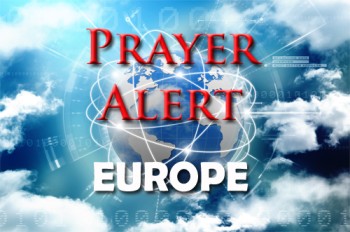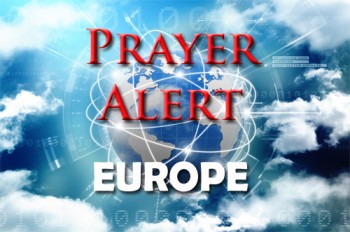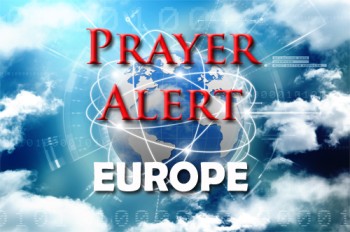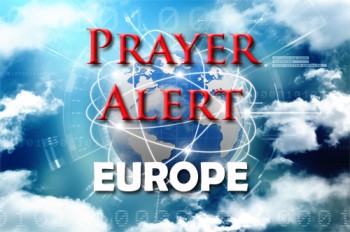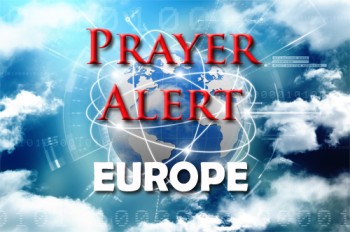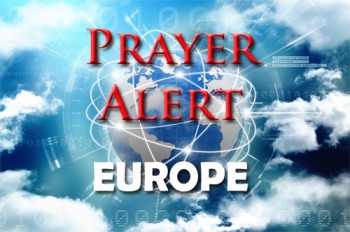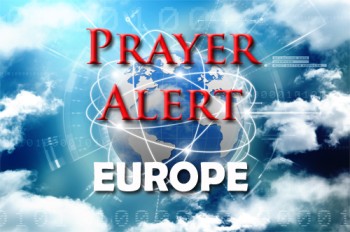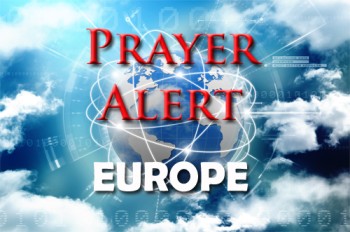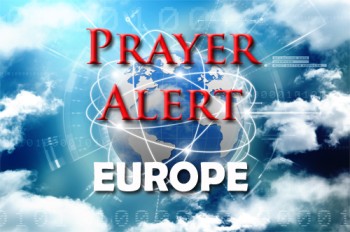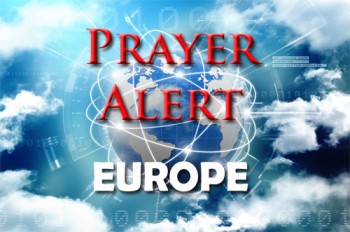Displaying items by tag: Europe
France / Brazil: Macron calls proposed deal ‘very bad’
During his visit to Brazil, Emmanuel Macron has called the proposed EU-Mercosur trade deal ‘very bad’. He called for a new agreement prioritising climate, biodiversity, and development. While Brazil is eager to sign, France, concerned about its farmers and environmental standards, has reservations. Brazilian officials remain hopeful, emphasising President Lula's commitment to strengthening ties with the EU. Macron also urged increased Brazilian investment in France and proposed collaboration in African markets. He plans to push for international standards promoting decarbonisation and environmental preservation at upcoming summits. His remarks reflect broader debates about balancing economic interests with environmental responsibilities.
Russia: and the winner is …
To nobody’s surprise, Vladimir Putin was declared the winner of Russia’s presidential election, with over 87% of the votes cast. In his victory speech, he showed his confidence by mentioning Alexei Navalny by name for the first time, claiming that he had agreed to a prisoner exchange for him shortly before Navalny died in prison. The Kremlin dismissed accusations of Navalny's murder by his widow, Yulia, as false: Putin callously referred to his death as a part of life. The election saw a variety of protests, including pouring dye into a ballot box and setting off Molotov cocktails: Putin played down their impact. The election faced criticism internationally for lack of fairness; British officials condemned Putin's victory as undemocratic and likened him to Stalin. Despite this reaction, the election has solidified his grip on power and given him a mandate to pursue the war with Ukraine more actively.
Ukraine: drone attacks on Russian oil refineries
On 12 and 13 March, Ukraine conducted heavy drone attacks on several Russian oil refineries, seriously damaging one and causing a fire at another, in one of the most serious attacks against Russia's energy sector in recent months. Oil prices rose 2% partly due to concerns about supply disruption following the attacks which Vladimir Putin said were an attempt to disrupt his country's presidential election this week. Russia and Ukraine have both used drones to strike critical infrastructure and military targets, with Kyiv stepping up attacks on Russian refineries and energy facilities in recent months. Ukraine's SBU security service claimed responsibility for the strikes, stating that they aim to weaken Russia's economic strength. The attacks targeted key sources of Russia's income, potentially reducing gasoline and diesel output. Ukrainian forces also targeted a Russian airbase and military airfield. The escalation underscores the intense conflict between the two nations and the potential economic impact of attacks on Russia's energy infrastructure.
Lithuania: attack on Navalny aide
Lithuania has blamed Moscow for a brutal hammer attack on Leonid Volkov, a close aide to the late Russian opposition leader, Alexei Navalny, outside his home in Vilnius. Volkov sustained injuries, including a broken arm, in the assault. The Lithuanian president has condemned the attack as a planned provocation, challenging Vladimir Putin's regime. Lithuanian authorities are intensively investigating the incident, attributing it to Moscow's efforts to influence the upcoming presidential election. Volkov has vowed to continue the opposition's struggle against Putin despite the attack. This assault marks the latest in a series of threats and violence against Navalny's allies living abroad, following his recent death in custody. His widow, Yulia Navalnaya, has urged the West not to recognise Russia's upcoming presidential election results, denouncing Putin as a usurper and murderer.
Russia attacks Ukraine’s Odesa as Greek PM visits war-stricken city
During a visit by Greek Prime Minister Kyriakos Mitsotakis to Odesa, Russia launched an attack on Ukraine's port city, resulting in at least five deaths. The strike, confirmed by a Ukrainian navy spokesperson, targeted a hangar reportedly housing Ukrainian naval drones. This assault coincided with Ukrainian President Volodymyr Zelenskyy's guided tour for Mitsotakis, showcasing the war-induced devastation. On March 2, a drone attack in the same city had killed 12 people, including five children. The latest strike, as described by the Russian Defence Ministry, successfully hit its intended target. President Zelenskyy, in response to the attack, highlighted the indiscriminate nature of Russian strikes. Mitsotakis experienced the immediacy of war, noting the stark difference between hearing about the conflict and witnessing it firsthand. European Commission President Ursula von der Leyen condemned the attack, calling it a "vile" act and a new form of terror by Russia. This attack marks a continuation of Russia's intensified strikes on Ukrainian ports, particularly following their withdrawal from a UN-brokered agreement that facilitated the safe passage of Ukrainian grain through the Black Sea.
36 million people across the European Region may have developed long COVID over the first 3 years of the pandemic
According to the World Health Organization (WHO), an estimated 36 million people in the European region may have developed long COVID during the first three years of the pandemic. This condition, characterised by lingering symptoms post-COVID-19 infection, presents a significant public health challenge. The WHO's statement highlights the need for comprehensive care and support for those affected. Long COVID symptoms can vary widely, from fatigue and cognitive dysfunction to more severe physical issues, impacting daily life and work capacity. The organisation stresses that these long-term effects require serious attention and response from healthcare systems. The WHO's Regional Director for Europe, Dr. Hans Henri P. Kluge, emphasises the critical need to understand and address long COVID. He calls for sustained research efforts, investment in rehabilitation services, and public health strategies to manage and mitigate its impact. This situation reflects the pandemic's ongoing and evolving challenges, with long COVID affecting millions across the European region. It underscores the importance of continued vigilance, research, and healthcare system adaptation to meet the needs of those living with the long-term effects of COVID-19.
Russia: human rights campaigner jailed
Oleg Orlov, a veteran human rights campaigner, has been sentenced to two and a half years in jail for criticising Russia's involvement in the Ukraine conflict. Orlov, 70, served as a leader in the Memorial human rights organisation, which received the Nobel Peace Prize in 2022 but was subsequently banned in Russia. He faced charges of ‘discrediting’ the Russian army by claiming it was engaged in ‘mass murder’ in Ukraine. Orlov staunchly defended his actions in court, lambasting the Russian state's descent into authoritarianism and fascism. The closure of Memorial marked a significant escalation in Vladimir Putin's crackdown on dissenting voices. Orlov's imprisonment reflects a broader trend of silencing anti-war activists. In his closing statement, Orlov paid tribute to Alexei Navalny, who died in prison on 9 February: he will be buried in Moscow on 1 March. on 1 March.
Russia: North Korean factories supplying munitions
South Korea’s defence minister has said that North Korea's munitions factories are operating at full capacity to supply weapons and shells to Russia for the war conflict in Ukraine. This revelation sheds light on North Korea's secretive role in aiding Russia's war efforts, while Ukraine's own need for military resupplies faces obstacles in Washington. The exchange involves millions of rounds of artillery shells, facilitated by shipments of food and other essentials from Russia, while other factories are operating at only 30% capacity due to shortages in raw materials and electricity. It is estimated that over 10,000 containers of munitions have been delivered since September. They come at a critical juncture in the conflict, as Moscow seeks to sustain its war efforts amidst heavy losses. Russia's recent capture of Avdiivka highlights its ability to wear down Ukrainian forces, while Kyiv faces challenges including manpower constraints and dwindling Western ammunition supplies.
Russia: Navalny’s widow steps into the spotlight
There has been a chorus of international condemnation after the Russian authorities announced the death of Alexei Navalny in an Arctic prison on 16 February. His widow Yuli Navalnaya has deliberately stepped into the spotlight by declaring her commitment to continue his fight for a better Russia. Blaming Vladimir Putin, she has called on fellow Russians to join her in opposing him. Her message resonates with those opposed to Putin's regime, offering hope and inspiration. Previously reserved, Yulia has emerged as a woman of resilience and moral authority, compelling in her grief and love for her husband's cause. Meanwhile, a court in the far north will hear a case brought by Navalny’s mother, who at time of writing still had not been allowed to see her son’s body: see
Germany / France / Belgium: people-smuggling operation dismantled
On 21 February, In a coordinated effort across four German states, with cooperation from France and Belgium, law enforcement agencies launched a targeted operation against a suspected human-smuggling gang at dawn. This response to illegal trafficking reflects growing concerns over such activities in Europe. It aimed not just to make arrests but to dismantle the entire network. The raid sheds light on the human suffering behind smuggling, emphasising the need for international collaboration to address its root causes. It underscores the importance of comprehensive strategies prioritising human dignity and safety. While there are questions about its long-term impact, the move represents a pivotal moment in the struggle against trafficking. It serves as a beacon of hope for a future where exploitation does not thrive on the vulnerabilities of the desperate.
